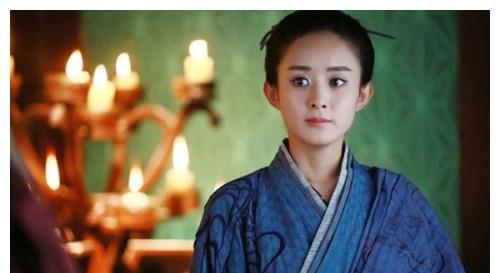Since the Tang Dynasty, the feudal rulers of our country have always had a fairly positive attitude towards Buddhism. Not only did he vigorously promote the construction of temples, but sometimes the emperor would imitate his own form, such as the Shunzhi Emperor of the Qing Dynasty, who became a monk.

The reason for this is that the teachings of Buddhism itself and the feudal ideas of the ruling class do not contradict each other, and even help to consolidate the function of rule. Therefore, Buddhism can flourish in the history of our country, even if the environment is again, it is only left alone. The imperial court will never prohibit the spread of religion among the people.
However, there is such an emperor who is indeed an exception, he once ordered the arrest of nuns and Taoist nuns throughout the country, and seems to be full of malice toward religion, but the monks have nothing to do, who is this emperor? And when will it be like this? Please read on.
This man was Zhu Di, the Yongle Emperor of the Ming Dynasty, who, in his 18th year after ascending the throne, issued such a holy decree: "All nuns and Daogu in Beijing and Shandong must be arrested and strictly interrogated in the capital." "As soon as it was promulgated, a large-scale arrest of nuns was carried out throughout the country, and these people were sent to Nanjing for interrogation.
It turned out that the initiator of this situation was a woman named Tang Sai'er. As we all know, in China's more than two thousand years of feudal history, the change of dynasties and the peasant uprising are irresistible historical necessities. Tang Sai'er was an uprising female peasant in Shandong at that time, when there was a serious famine in her hometown, and the government not only did not provide disaster relief, but also arrested victims begging for grain. Tang Sai'er, in a fit of rage, raised an army in Qingzhou and broke the Ming Dynasty army.
Of course, Zhu Di could not sit idly by, so he sent elite soldiers to suppress this peasant uprising, during which he also lost two generals, which made Zhu Di feel sad, and at the same time, he was angry with Tang Sai'er and vowed to be arrested alive. As a result, although Tang Sai'er's army was defeated, she herself escaped safely and disappeared. Zhu Dilongyan was furious and promulgated the above-mentioned holy decrees against nuns and Daogu.
And what is the relationship between Tang Sai'er and the nun Daogu, is she not an ordinary female farmer? Non-also, Tang Sai'er was also the female leader of the White Lotus Sect in the early Ming Dynasty. Speaking of the White Lotus Sect, most people are not unfamiliar, and these three words have appeared in many costume dramas. It is a kind of Chinese folk secret organization that originated in the Tang Dynasty, mixed with Buddhism, Mingism, Taoism and other religious beliefs, and in thousands of years of feudal history, there have been many peasant uprisings.
Therefore, Tang Sai'er and this White Lotus Sect were inextricably linked, and at that time, the White Lotus Sect did not have a special temple, just an ordinary folk secret organization. Because of their own revolutionary nature, all dynasties and generations have strictly eliminated their existence, but because they are very hidden, they are completely hidden from the people. The imperial court also did not have a good way to wipe them all out.
Zhu Di also had no way to do it, he only knew that Tang Sai'er was related to the White Lotus Sect, but he didn't know where to start. Therefore, based on the beliefs of the White Lotus Sect, he speculated that Tang Sai'er could only hide in the temple or become a Taoist monk, so there was the scene at the beginning of the article.
However, in the end, Zhu Di investigated and punished more than 10,000 nuns and Daogu, and did not find any trace of Tang Sai'er, and this matter was later resolved. On the contrary, Tang Sai'er's uprising also sounded the alarm bell for Zhu Di, who immediately held the officials in Shandong accountable, investigated and punished them on the grounds of ineffective disaster relief, and sent new officials to vigorously relieve the disaster, reducing local taxes, and soon, Shandong returned to calm.
Therefore, although Tang Sai'er's uprising failed, it still achieved the desired effect. As for the organization of the White Lotus Sect, it was still mentioned in the Qing Dynasty, and it was also mentioned in the movie "Huang Feihong", but how it was later, it is estimated that it developed with the times and naturally annihilated in the long river of history.